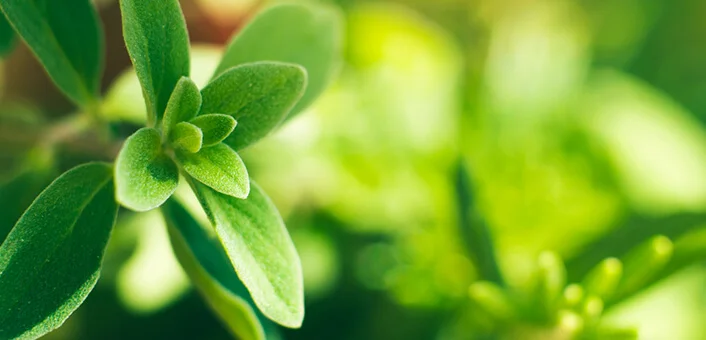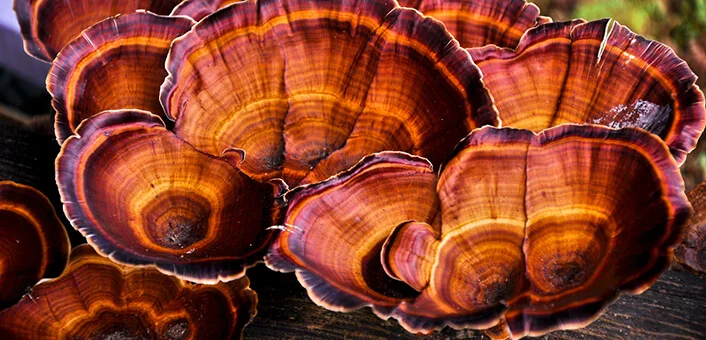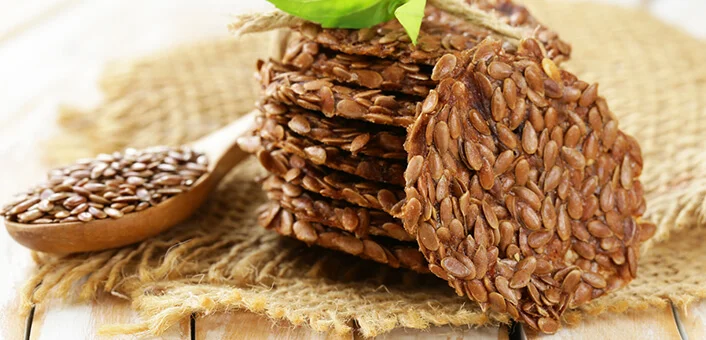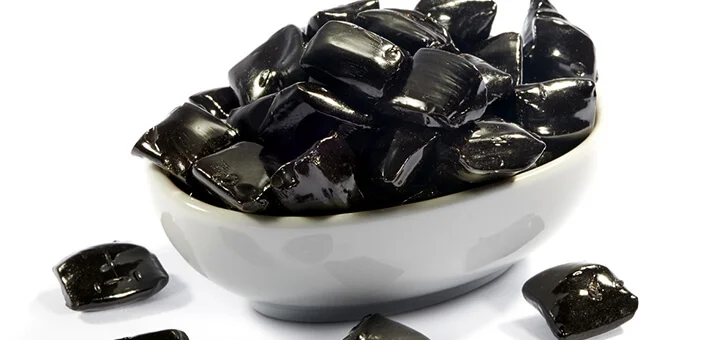PCOS test is based on the Rotterdam criteria for diagnosing PCOS.

Diet
High androgen or male-sex hormone levels lie at the heart of Polycystic Ovarian Syndrome (PCOS.) These excess androgens like testosterone are the main culprits behind a myriad of pesky PCOS symptoms like cystic acne, excessive body hair, thinning hair on the scalp, dark skin patches and even your unexplained weight gain. Since a healthy diet is one of the best ways to treat and manage this endocrine disorder, why not give your PCOS diet an extra punch of natural foods that have anti-androgen abilities to lower testosterone! Let’s take a look at the top 8 foods that reduce testosterone naturally.
Fatty fish is a rich source of Omega-3 fatty acids. In particular, cold water fish like salmon, sardines, tuna, mackerel, trout and herring are good foods to reduce testosterone. Studies have found that Omega-3 supplementation could reduce serum concentrations of testosterone and regulate periods. At Shahid Sadoughi University of Medical Sciences, Iran, scientists put 78 overweight women with PCOS on 3gr/day of omega-3 supplements for 8 weeks. By the end of the trial, testosterone concentration was significantly lower in the group of women who were administered omega-3 group and regular menstruation was achieved by almost half the participants.
The good news is that adding oily, fatty fish to your diet will bring about the same testosterone-lowering benefits. Plus fish is such an integral part of a healthy PCOS diet because it’s a good source of proteins, healthy fats and a variety of vitamins and minerals. Eating whole small fish like sardines and mackerel also gives your diet a must-needed calcium boost! Eat 2-3 servings of fish per week.
All nuts are a good source of healthy fats. But when it comes to testosterone-lowering abilities, walnuts and almonds reign supreme. In a study conducted at University of California, 31 women with PCOS were given either walnuts or almonds containing 31 g of total fat per day for 6 weeks. By the end of the trial, researchers found that walnuts increased Sex Hormone-Binding Globulin (SHBG) from 38.3±4.1 to 43.1±4.3 nmol/l (P=0.0038) and almonds reduced free androgen index from 2.6±0.4 to 1.8±0.3 (P=0.0470). In case you’re wondering, SHBG is a protein that binds to testosterone and can lower your free testosterone levels circulating in the blood, improving your overall PCOS symptoms.
What’s better, eating these nuts also has beneficial effects on plasma lipids and insulin activity, making them a must-add to any healthy PCOS diet.
If you’re on a PCOS diet and trying to cut back on your soda and caffeine intake, herbal teas are a good choice as foods that reduce testosterone. Spearmint tea has significant anti-androgen effects that can be very beneficial for women dealing with PCOS. In a study conducted at Eastbourne District General Hospital, Sussex, UK, researchers studied the anti-androgen effects of spearmint tea in women with PCOS. 42 women with PCOS were given 2 cups of tea per day and were tracked over a period of 1 month. By the end of the trial, Free and total testosterone levels were significantly reduced in the spearmint tea group, while LH and FSH also increased. Patients also reported a reduction in other symptoms of hyperandrogenism like hirsutism.
It’s safe to drink 2-3 cups of spearmint tea every day. This is a really soothing, calming herbal tea that also helps relax you and keep bloating at bay. What’s better, it also aids in digestion and is good for your gut health. We call this one a win-win!
Our Choice of Spearmint Tea available on Amazon:

Marjoram is another natural food that reduces testosterone and has often been used in alternative medicine to regulate the menstrual cycle and promote hormonal balance. In particular, marjoram tea can help reduce levels of adrenal androgens in women with PCOS. Researchers from The University of Jordan gave 25 women with PCOS wither marjoram tea or a placebo tea twice daily for 30 days. By the end of the controlled trial, women who drank marjoram tea has significantly reduced DHEA-S (another androgen that’s produced by the adrenal glands) and fasting insulin levels.
You can use marjoram as a herb to flavour your food. This Mediterranean herb goes well with soups, stews and curries, and can be used as a milder alternative to oregano. Enjoy a cup of testosterone-lowering tea by brewing fresh or dried marjoram herb with a cup of water for 5-10 minutes.

In ancient Japanese medicine, Red Reishi Mushrooms are touted for their abilities to act as a very potent antiandrogen. Researchers at Kyushu University, Japan studied the anti-androgenic effects of 20 species of mushrooms to find that reishi mushrooms had the strongest action in inhibiting testosterone. The study found that reishi mushrooms significantly reduced levels of 5-alpha reductase, preventing the conversion of testosterone into the more potent DHT. High levels of DHT are a strong contributor for PCOS symptoms like acne, hirsutism, alopecia and dark skin patches.
Reishi mushrooms have a slightly bitter taste, so are often brewed into a tea. However, that doesn’t mean you can’t use these Japanese mushrooms for cooking. Simply soak the mushrooms overnight in water, and discard the water before cooking. This helps in removing some of their bitterness, and then the mushrooms can easily be incorporated into stir-fries, stews, soups, curries and can also be grilled for a wonderful side dish.

Flax seeds are a great source of fiber, omega 3 fatty acids, and essential amino acids, which are all excellent additions to your diet for PCOS. However, flaxseeds also have potent anti-androgen abilities, making them one of the most potent among foods that reduce testosterone naturally. In a clinical study at Duke University Medical Center, Durham, a 31-year old woman with PCOS was given 30g flaxseed supplements for 4 months. The reductions in androgen levels observed in this case study far surpass those reported with any other dietary intervention conducted to date. A significant decrease in androgen levels was observed, with total serum testosterone reduced by 70%, free serum testosterone reduced by 89% and 65% decrease in the % free testosterone. Additionally, she also lost weight and showed improved insulin sensitivity.
The best way to use flaxseeds is to grind them into flaxseed meal, as whole flaxseeds can pass through the human digestive system intact. Flaxseed meal has a mild, nutty flavor so you can easily add them to stir-fry, curries, dry vegetables, batter, soups, salads, smoothies, oatmeal and almost everything you eat.
Red clover is a rich source of phytoestrogens, which are water-soluble plant-based estrogens. They have an ability to fit into estrogen receptors of the body, which is why they have testosterone-lowering powers. Rat studies have found that Red Clover -derived isoflavones have a significant effect on lowering testosterone and DHT levels.
Scientists are exploring the possibilities of using phytoestrogens derived from red clover as an alternative to estrogen replacement therapy. Red clover leaves have a mild bean-like taste and can easily be incorporated into salads, soups and stews. However, the wild edible flower packs the most nutritional punch. They can be made into a tea or also added to salads, soups, curries or even used as a garnish.

Licorice is a fantastic remedy for hormonal imbalances in PCOS because of its anti-androgen abilities. Scientists from the University of Padua, Italy found that Licorice can reduce serum testosterone and could be considered an adjuvant therapy of hirsutism and polycystic ovary syndrome. The other study found that PCOS patients on spironolactone — an anti-androgen pharmaceutical therapy, fare better when an additional dose of 3.5g of licorice a day is given.
Brew a home-made tea with dried licorice roots. A lot of people find that a tea brewed from a combination of Licorice and White Peony Root is particularly helpful in balancing out hormones. Licorice root can be used to make healthy candies or treats as well.
Have you tried any of these foods that reduce testosterone naturally? Write in and share your experiences with us!
While dietary changes can definitely have a positive impact in managing PCOD, reversing the condition requires a holistic approach. Learn how to reverse PCOD naturally with Sepalika’s 5-Petal PCOD Programme. Our personalised protocols using a holistic approach help treat PCOD at the root through diet, nutrition, exercise, Ayurveda and magnet acutherapy. What’s more, expert consults via phone and WhatsApp help you always stay on track in your journey to overcome PCOD. Click here to know more.
The effect of omega-3 supplementation on androgen profile and menstrual status in women with polycystic ovary syndrome: A randomized clinical trial – https://www.ncbi.nlm.nih.gov/pmc/articles/PMC3941370/ Differential effects of walnuts vs almonds on improving metabolic and endocrine parameters in PCOS – https://www.nature.com/ejcn/journal/v65/n3/abs/ejcn2010266a.html Spearmint herbal tea has significant anti-androgen effects in polycystic ovarian syndrome. a randomized controlled trial – https://onlinelibrary.wiley.com/doi/10.1002/ptr.2900/full The effect of marjoram (Origanum majorana) tea on the hormonal profile of women with polycystic ovary syndrome: a randomised controlled pilot study – https://onlinelibrary.wiley.com/doi/10.1111/jhn.12290/full Anti-androgenic activities of Ganoderma lucidum – https://www.sciencedirect.com/science/article/pii/S0378874105003673 The Effect of Flaxseed Supplementation on Hormonal Levels Associated with Polycystic Ovarian Syndrome: A Case Study – https://www.ncbi.nlm.nih.gov/pmc/articles/PMC2752973/ Phytoestrogens derived from red clover: An alternative to estrogen replacement therapy? https://www.sciencedirect.com/science/article/pii/S0960076005000658 Anti-androgenic action by red clover-derived dietary isoflavones reduces non-malignant prostate enlargement in aromatase knockout (arko) mice – https://onlinelibrary.wiley.com/doi/10.1002/pros.10230/full Licorice reduces serum testosterone in healthy women – https://www.ncbi.nlm.nih.gov/pubmed/15579328?dopt=Abstract Treatment of polycystic ovary syndrome with spironolactone plus licorice – https://www.ncbi.nlm.nih.gov/pubmed/17113210?dopt=Abstract